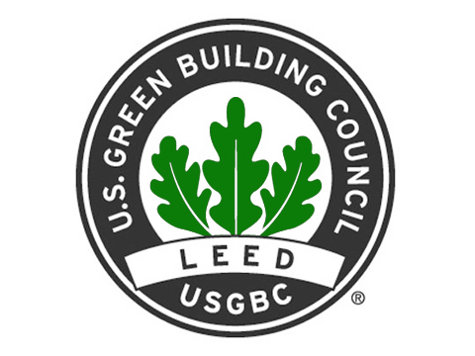Fringe environmentalists are dictating to the federal government and 34 states what materials can be included in the construction government buildings. And it should come as no surprise that ideology, not science, informed the movement.
The Leadership in Energy and Environmental Design (LEED) program bans products that are safe – even products that are proven to enhance energy efficiency and water conservation – in order to accomplish extreme political goals. The latest changes to the LEED standard would ban the use of certain types of plastics, including those used to create bulletproof glass. That’s right, if the LEED standards are allowed to go through, state and federal courthouses, prisons and other government buildings will not be able to use bulletproof glass in their construction.
To most, that fact is so contrary to common sense. But to the U.S. Green Business Council (USGBC), the independent group that came up with the standards, it is part and parcel of their warped thinking.
As is often the case in American government, the best ideas are those hatched outside the Beltway. State executives are already taking real action to block the implementation and further adoption of LEED, even as the most Congress can muster is a sternly-worded intra-chamber open letter.
Two governors, Georgia’s Nathan Deal and Maine’s Paul LePage, recently issued executive orders to expand their state’s reliance on different energy-efficient certifications, particularly with respect to timber, which LEED views very narrowly.
But inside the Beltway, Congress has taken little substantive action to actually stop the LEED standards from radicalizing building construction and hurting businesses across the country. The federal government needs to take leadership and send a clear message to the USGBC: We will no longer rely solely on your extremist views and instead use logic when deciding how federal buildings will be constructed.
Separate groups of legislators in the U.S. House and Senate asked the General Services Administration (GSA) to not adopt any updated LEED standards, but no legislation has yet been introduced that would bar the federal government from using the controversial green building program.
So, the USGBC followed a good crisis communications plan and postponed the official vote on the standards, which it refuses to change, instead deciding to wait a year until the heat dies down. “USGBC hopes that by changing the program’s name and postponing its adoption by a year, people will forget that it is a fundamentally radical attempt to choke off safe products and responsible industry,” wrote Taylor Buckson.
Unless Congress takes action–real action, not letters–it’s very likely that new, even more severe LEED standards will be imposed on the federal government.

COMMENTS
Please let us know if you're having issues with commenting.